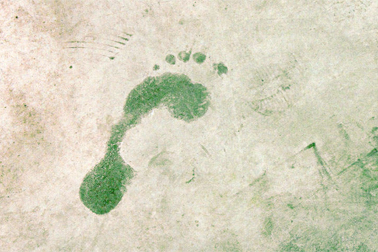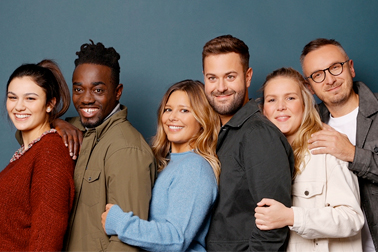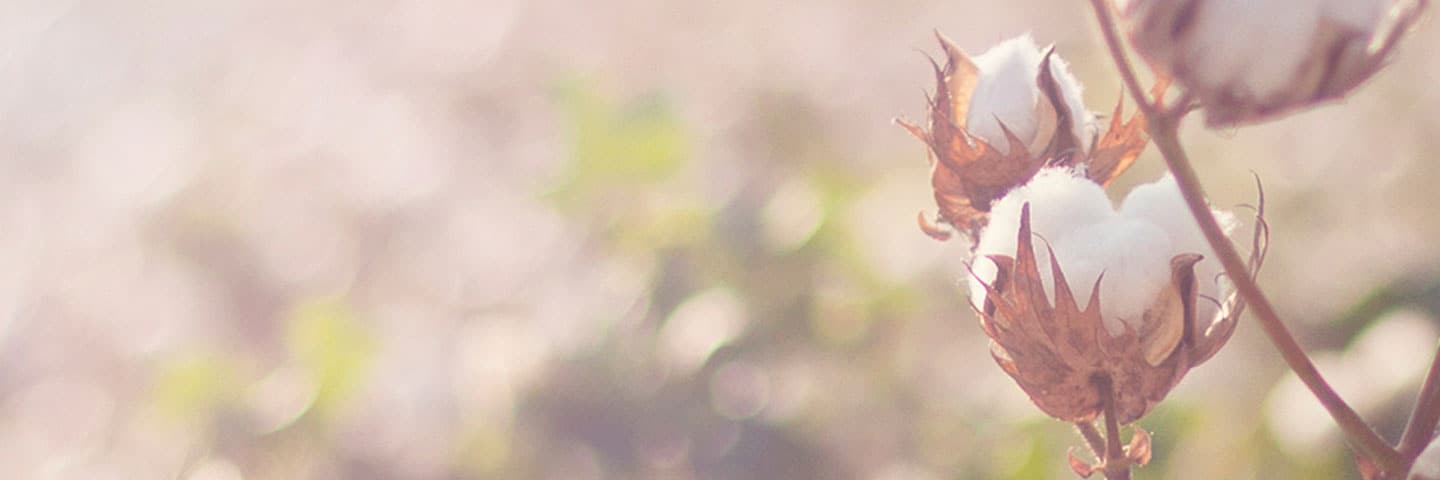
Sustainability at VAN GRAAF
It is often difficult to recognize whether an item of clothing has been produced and transported in a particularly sustainable manner.
Keeping track of sustainability with the excess of seals and certificates is not simple. Therefore, we are happy to explain the essential seals and product names, standards, and focus. These form the basis for the evaluation and labeling of our products.
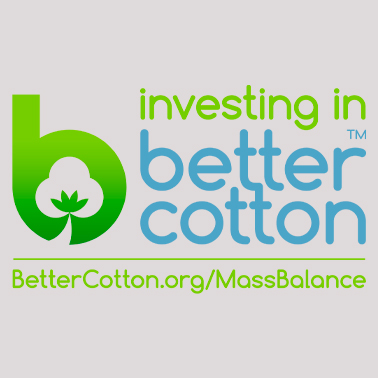
BETTER COTTON INITIATIVE
The Better Cotton Initiative is backed by environmental and human rights organizations as well as companies in the textile industry. The non-profit BCI wishes to improve environmental and working conditions in cotton cultivation and, to do so, it teaches farmers to reduce harmful chemicals, use water efficiently, respect natural living spaces, and respect the well-being and rights of workers.
More informationCOTTON MADE IN AFRICA
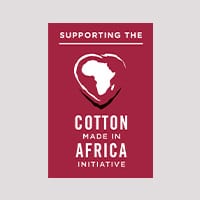
Cotton made in Africa (CmiA) is an initiative by the Aid by Trade Foundation (AbTF) and an internationally recognized standard for sustainable African cotton. Through independent verification, the cultivation and ginning of cotton is audited according to economic, social, and ecological criteria, and small farmers need to regularly demonstrate sustainable improvements in their work processes. The goal is to improve the work and living conditions of African cotton farmers over the long term and to protect the environment.
More information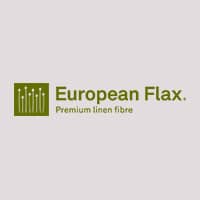
EUROPEAN FLAX
Products that are EUROPEAN FLAX®-certified guarantee the traceability of premium linen fibers grown in Europe. It is a natural and sustainable fiber that is cultivated without artificial watering and is free from GMOs (genetically modified organisms).
More informationGLOBAL ORGANIC TEXTILE STANDARD
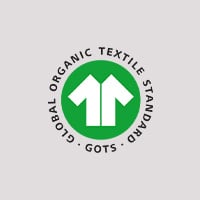
Global Organic Textile Standard (GOTS) is the leading global standard for processing textiles from organically produced natural fibers. GOTS covers the entire production chain at an extremely high level—from harvesting the raw materials to environmentally and socially friendly production and even the sale of GOTS-certified textiles. A product with a GOTS seal must contain at least 70% certified organic fibers. Types: Made with organic materials: At least 70-94% cotton Organic: At least 95% cotton
More information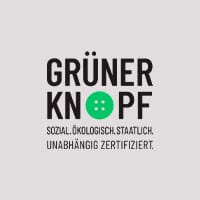
GRÜNER KNOPF
The Grüne Knopf is a government seal that contains a total of 46 demanding standards to protect people and the environment. These include, among others, a prohibition on child and forced labor as well as the use of chemicals, limits for wastewater, or the payment of minimum wages. Independent bodies certify compliance with these criteria.
More informationGLOBAL RECYCLE STANDARD
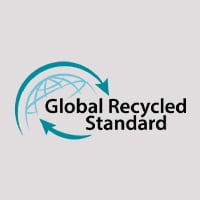
The Global Recycle Standard (GRS) pursues the goal of increasing the percentage of recycled material in a product. The standard enables companies to measure the exact percentage of recycled material in a product and track it through the production chain. Furthermore, the GRS contains requirements for the additives used in GRS products as well as guidelines on environmental management and social responsibility in the company. GRS is focused on measuring the percentage of recycled materials.
More information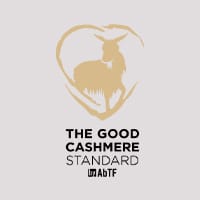
GOOD CASHMERE STANDARD
The independent Good Cashmere Standard has defined a new benchmark for the production of sustainable cashmere. It wishes to improve the well-being of cashmere goats, sustainably ensure the life and livelihood of cashmere farmers and their families, and protect their environment.
More informationLEATHER WORKING GROUP
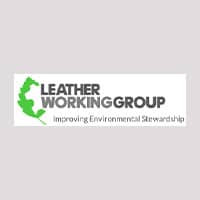
The membership initiative, the Leather Working Group (LWG) wishes to make leather processing more transparent and improve the conditions in tanneries and distributors over the long term. For instance, it aims to stop using any potentially critical substances and reduce water and energy consumption. Furthermore, the initiative regularly audits occupational safety. Multiple stakeholders with players from industry, retail, NGOs, and scientific institutions work together to that end. The Leather Working Group's guidelines are already being followed at more than 10% of leather production operations worldwide.
More information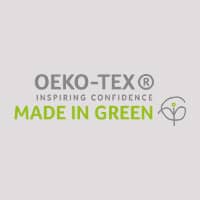
OEKO-TEX MADE IN GREEN
MADE IN GREEN by OEKO-TEX® is a sustainable product label for all sorts of textiles (e.g., clothing and home textiles) and leather items of all preliminary stages (e.g., clothing, finished and semi-finished leather), including the accessory materials that are used. The MADE IN GREEN label is proof that an item has been tested for harmful substances. This is accomplished via certification according to STANDARD 100 or LEATHER STANDARD by OEKO-TEX®. Furthermore, it ensures that the textile or leather product has been manufactured using sustainable processes under socially acceptable working conditions. This is accomplished via certification according to STeP by OEKO-TEX®. Using a unique product ID on the label, you can track the countries and production facilities in which the labeled items were produced.
More informationRESPONSIBLE WOOL STANDARD
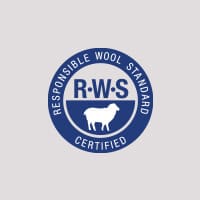
The Responsible Wool Standard is the leading standard for animal welfare and pasture protection, and it guarantees responsible sheep breeding and soil cultivation. Furthermore, the certificate aims to make delivery chains transparent and traceable.
More information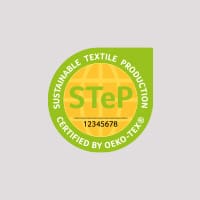
SUSTAINABLE TEXTILE PRODUCTION (STEP) BY OEKO-TEX
STeP by OEKO-TEX® is an independent certification system for brands, retail companies, and manufacturers in the textile and leather industry. The certification is suitable for production facilities at all processing levels that wish to show their environmental measures credibly and transparently to the outside world. Any textile company is eligible for certification, such as fabric producers, spinning mills, weaving mills, embroideries, knitwear factories, finishing facilities, manufacturers, producers of accessories, foam and mattress producers, and textile logistics centers. All processes ranging from the beamhouse to tanning and even manufacturing are certifiable.
More information
SUSTAINABLE PRODUCT LABELS
In addition to the numerous seals, there are also product names on the market that guarantee sustainability and transparency. They certify resource-friendly cultivation, socially fair working conditions, or pollution-free production. The use of certain raw materials can also make a product sustainable. These include raw materials that, at least in part, are used in the outer fabric. You can identify compliance with these sustainability criteria by the following product labels:
- Bio-Baumwolle (Organic Cotton)
- European Linen
- Birla Spunshades
- LENZING ECOVERO
- LENZING TENCEL
- LENZING VISCOSE
- LENZING Lyocell
- All recycled materials
- CO2-reduced
- Manufactured with less water
- Manufactured with chrome-free tanned leather
- Manufactured with FSC-certified wood, paper, rubber, or cork


